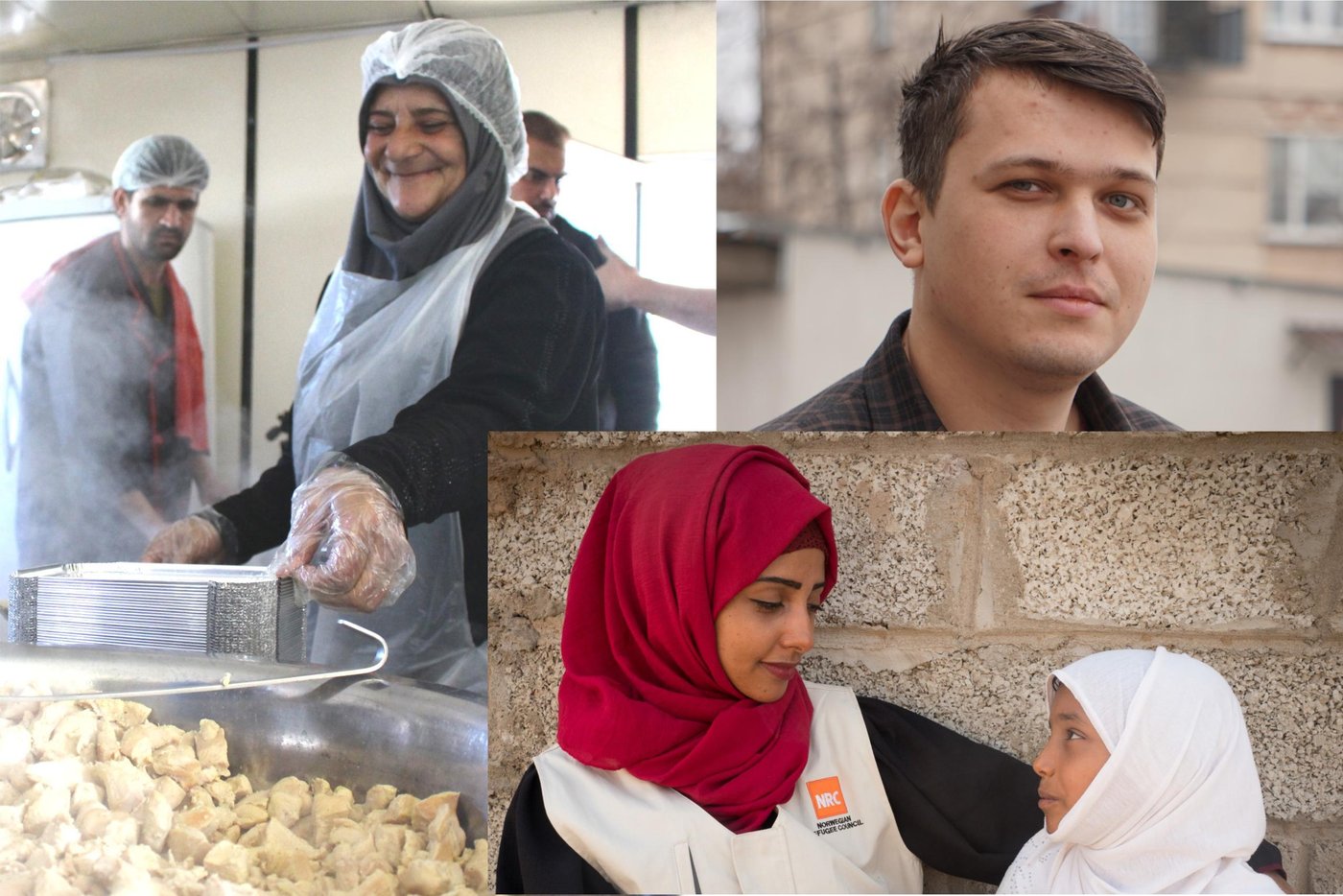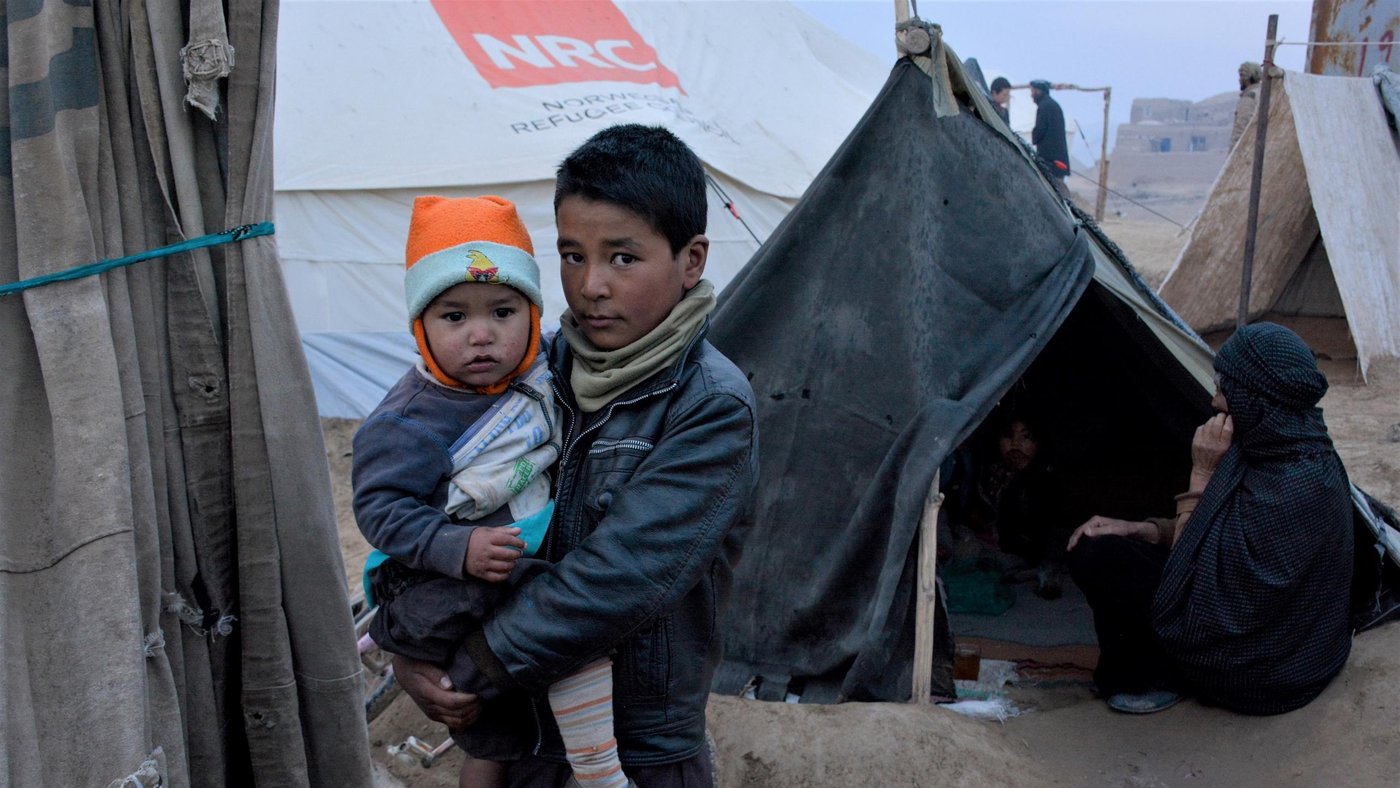But, just as society is starting to realise the value of people power to tackle climate change, so there is hope for refugees worldwide. The Norwegian Refugee Council (NRC) provided assistance and protection to 8.5 million displaced people in 2018. With your support, we can reach even more people in 2019 and beyond – saving lives and rebuilding futures.
What’s the problem?
Today, a record 70.8 million people are fleeing war and persecution. Not since World War Two have more people needed our help. In 2018 alone, 10.8 million people were displaced within their own country as a result of conflict.
These problems are increasingly being compounded by extreme weather events such as droughts, floods and tropical cyclones. In Somalia, for example, a combination of violence, insecurity and drought has driven millions from their homes, and the UN Refugee Agency predicts that 5.4 million will be short of food by July 2019.
Displacement can be a source of instability as well as a symptom. When large groups of people arrive in a new area there are often tensions with the host population, who may themselves be struggling for survival. This can lead to conflict and further displacement – and so the cycle continues. Cameroon, itself one of the world’s major crisis zones, is currently hosting about 400,000 refugees from neighbouring Nigeria and the Central African Republic (CAR).
The human stories behind the numbers
These are big numbers, numbers so inconceivably huge that they start to lose their meaning. But behind each statistic there is a human being with their own unique story.
Like Khitam, who fled to Lebanon from Syria with her family, only to encounter devastating winter storms.
Or Maksym, the law student whose family home was destroyed by air strikes in eastern Ukraine.
Or Malka, the Yemeni primary school teacher who escorted her pupils to safety through a hail of gunfire.

Why should we get involved?
It’s tempting to think of human displacement as an inevitable fact of modern life. A political problem that can’t be fixed. An issue so vast and complex that nothing you or I can do will make the slightest difference.
It’s understandable, then, that many people are sceptical about the ability of an aid agency to effect real and lasting change. We see this scepticism every day on our social media pages. But we prefer to take a more optimistic view.
“Not our country. Not our problem.”
In today’s interconnected world, the large-scale displacement of people is everyone’s problem, whether we like it or not. The recent deadly traffic of migrants across the Mediterranean has shown how a crisis in one place can affect many other parts of the world. Only by engaging with the issues and providing help where it’s needed can we avert more serious problems further down the line.
“We can’t go into every country and save them.”
Perhaps not, but we can help some – and every life saved or made better matters. In 2018, NRC provided assistance and protection to 8.5 million people, spread over 31 countries. That’s one in eight displaced people worldwide. And with your support we can reach even more people in the years to come.
“Instead of distributing biscuits, ask the warlords to stop killing innocent people.”
Our advocacy teams work day and night to improve the political situation in conflict-torn countries around the world. We also stand up and alert the world community about human rights violations wherever we see them, and appeal to warring factions to protect civilians. However, displaced people also need help in the short term – and that’s where the biscuits come in!
“Aid is a business to make money out of poverty. NGOs never enable people to stand on their own feet.”
NRC’s mission is to “help save lives and rebuild futures” – and both these elements are equally important. Among other things, we offer legal assistance so that people can get the documents they need to claim personal and property rights. We also provide education and training, and give out small grants so that people can start their own businesses to support themselves and their families.

Why support NRC in particular?
There are many humanitarian organisations around the world doing excellent and valuable work to help displaced people. So, what makes NRC different?
- We help those who need it most, prioritising areas that are hard to reach or that have been neglected by other agencies.
- We respond quickly to save lives, mobilising experts to provide aid wherever it’s needed as soon as disaster or conflict strikes.
- We give practical assistance, working on the frontline to provide tents, food, clean water and other essentials to those in need.
- We contribute to lasting solutions, helping displaced people to support themselves and preventing further displacement.
- We are highly efficient and transparent, with over 90 per cent of our income going directly towards helping people forced to flee.
What happens to the people we assist?
Some of the people we help succeed in returning to their home region after the crisis situation is over. Others manage to build a new life for themselves and their families in a new part of the world. All are given hope for the future and a sense that their lives have value.
A few even go on to work for NRC themselves, using their invaluable experience to save lives and help other displaced people.
Today, Khitam is working as a cook, producing meals for 300 families affected by the storms in Lebanon.
Maksym is providing legal support to people affected by conflict in his home region of Luhansk, eastern Ukraine.
Malka is helping to rebuild schools, giving hope to thousands of children in southern Yemen.
How you can make a difference
Join us in supporting the 70.8 million people displaced by war and persecution worldwide. You can contribute to our work in the following ways:
- Make a donation to NRC today – via our safe and easy online donation system.
- Start your own fundraising page – and invite friends and family to help you reach your target.
- Read about ten things YOU can do for the world’s refugees – and discover some creative ways that you can raise money and awareness.
For alternative ways to donate, or if you’re a US citizen looking to make a 100% tax-deductible donation, please see our Make a difference page.
Thank you! Together we can save lives and rebuild futures.


